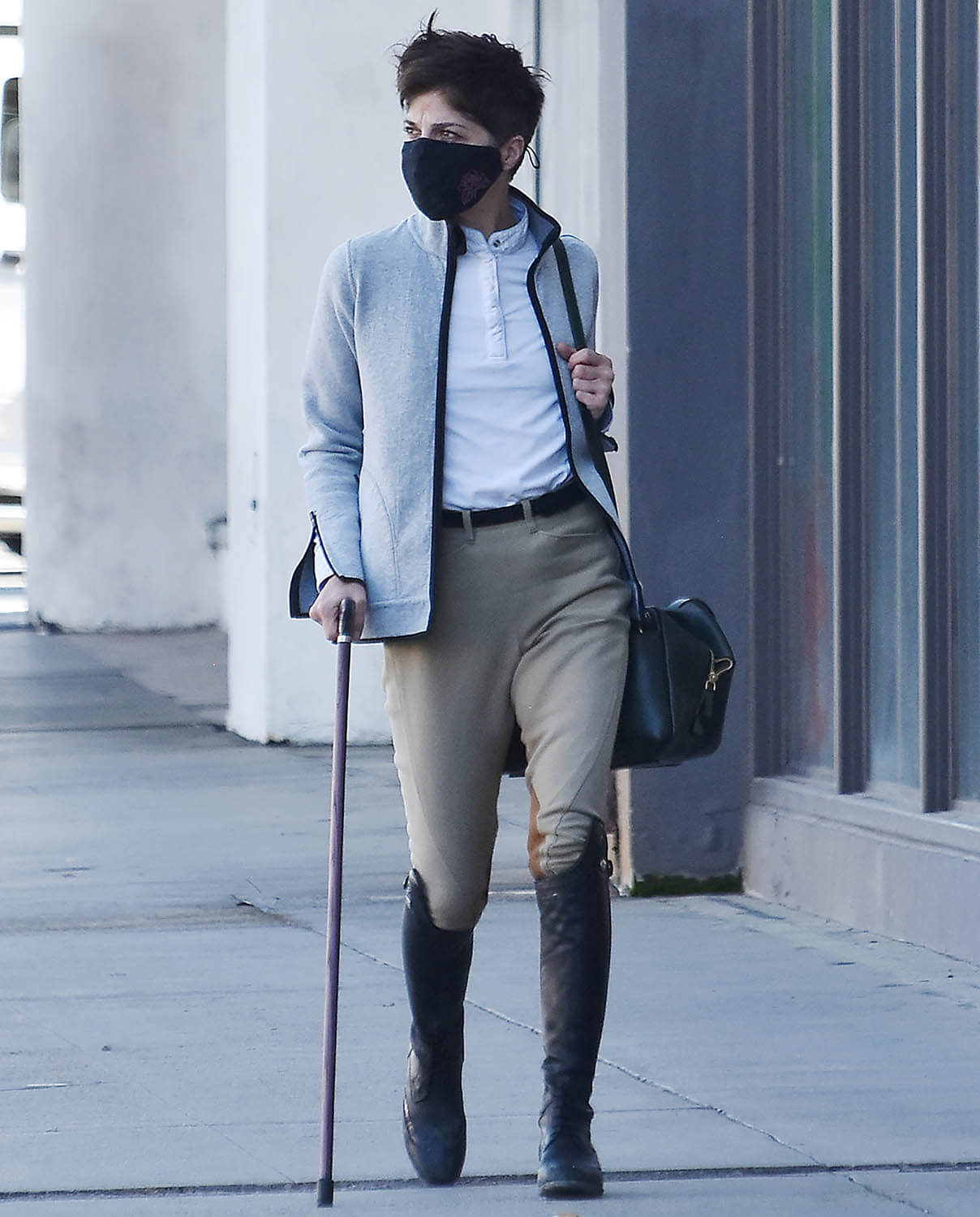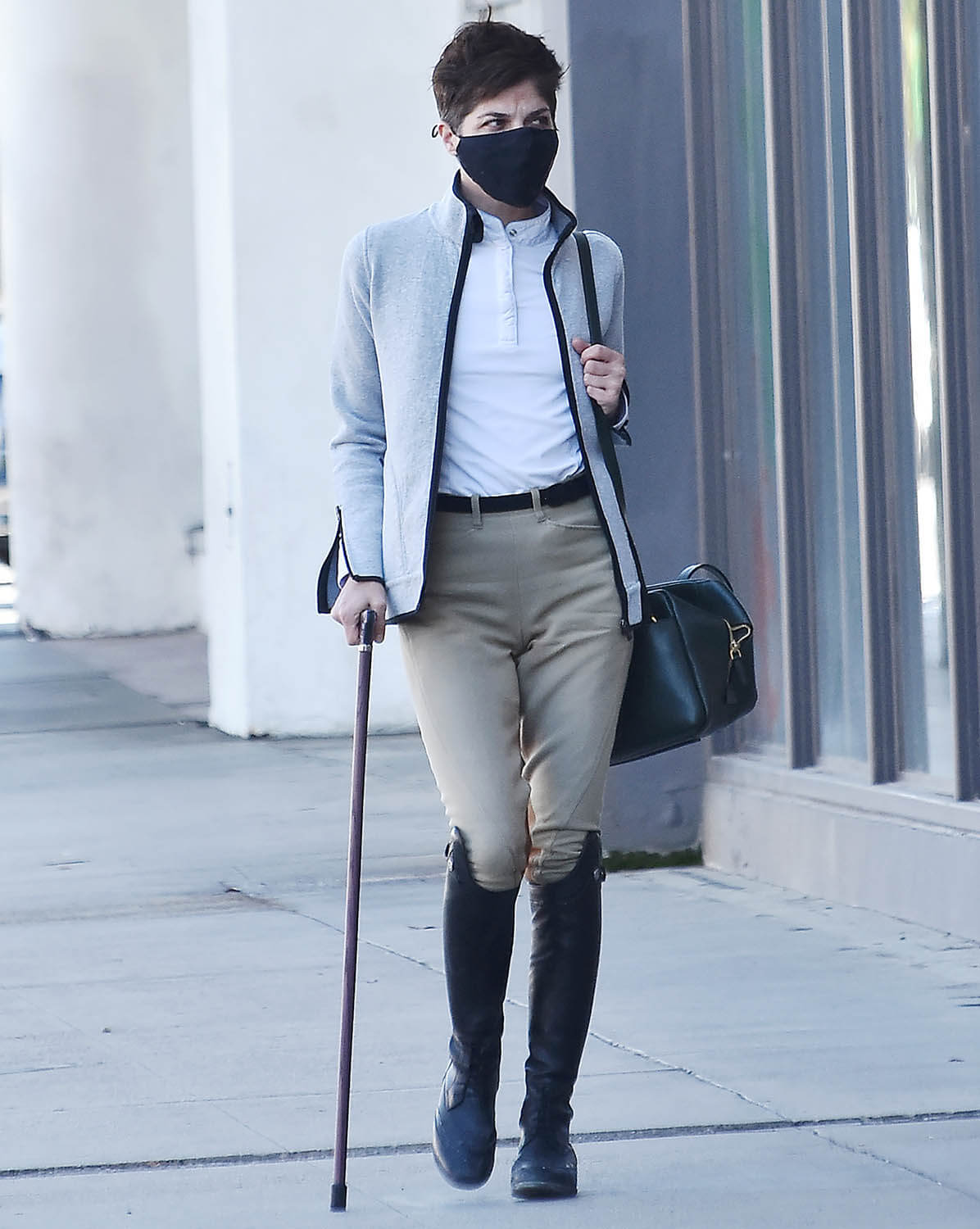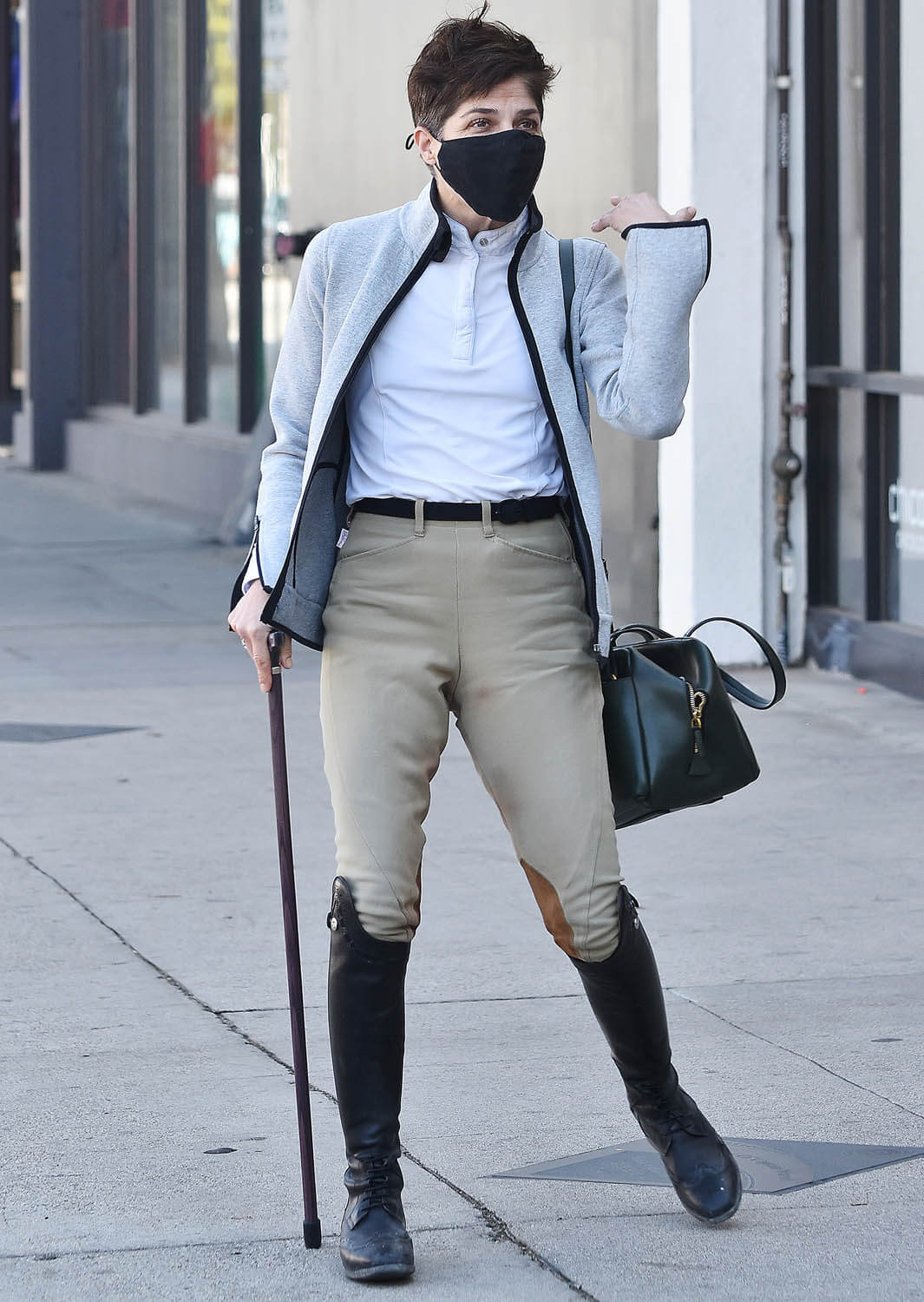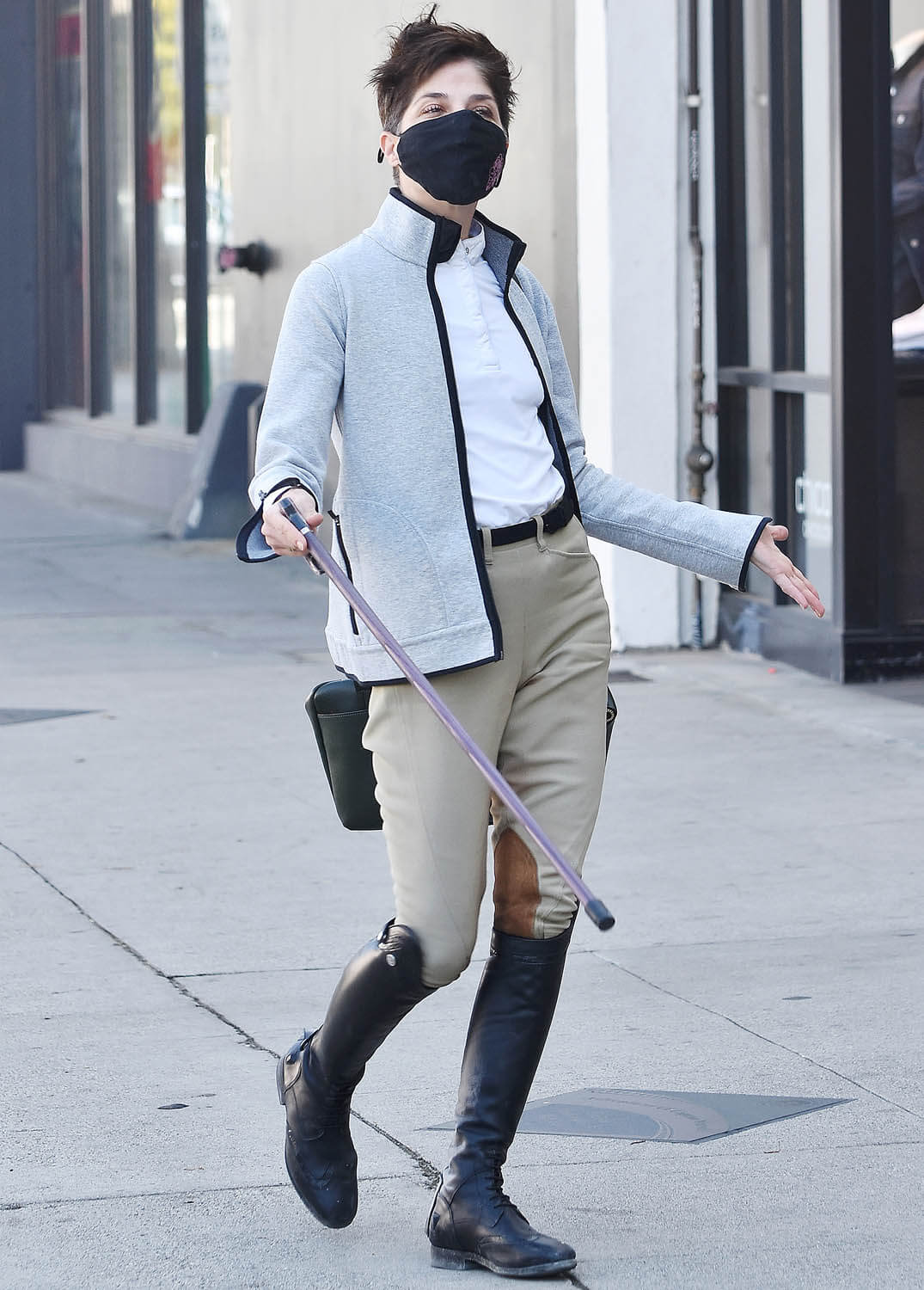Introducing, Selma Blair



Selma Blair is the kind of exhilaratingly self-aware performer who will cartwheel weeks after a stem cell transplant, then curl up into a ball and laugh about how she wanted to stick the landing, only to lie on the floor dormant before saying, “I’m trying to look dead for a dramatic ending.” These playful asides, coupled with her emotional reflections about her evolving relationship with her multiple sclerosis diagnosis help make Introducing, Selma Blair a riveting, and intimate must-see.
After all, this is the same actress who famously told Robin Roberts back in 2019 that she still “love[s] a camera,” even while enduring an MS flare up. So it should not be a surprise that this documentary, which premiered at SXSW this week and will drop on Discovery Plus later this year, opens with Selma’s Norma Desmond cosplay in a long-sleeved, V-neck leopard print dress and turban. Within minutes, however, as Selma sits down for an interview, and her comfort dog hops off her lap, her speech pattern changes, the tremors start… and the camera stays glued to her as her spirits shift.
"See now without my comfort dog, now my fatigue happens... Well, this is what happens that I don't want people to see. That once I get really uncomfortable, but I'm not uncomfortable with you or anything. It's the... MS. That's what people don't understand. And I'm better if I'm brought in. … I got to laugh, look at how I'm dressed (like the reclusive Norma Desmond from ‘Sunset Boulevard’).”
Introducing, Selma Blair maintains an unflinching focus on its subject, and her disarming honesty, so that these moments of raw emotion and levity are able to breathe. The audience absorbs her tenacious spirit. Sure, she is always aware of the camera, but her silliness never feels performative. Instead, this glossy glimpse into Selma’s world, and the shift to disability activism, shows her resilience while living with this progressive autoimmune disease for which there is no cure, and can change minute-to-minute. Just do not call her “brave.” According to her manager Troy Nankin (also a producer of the documentary), her Hollywood peers would keep calling her “brave” when they saw her crying over her frustration with her mobility at the 2019 Vanity Fair Oscar Party, whereas she would call it “walking and talking.”
The film takes viewers on Selma’s painful medical journey, from delayed discovery to her eventual diagnosis, and her self-shot video diaries of her struggling to write, but it is very much a Hollywood tale about celebrity. Selma walks us through her film history, flips through notable magazine covers, and recalls her most memorable roles from her life as a “supporting actress.” Clips from Legally Blonde (Vivian Kensington!), Cruel Intentions (Cecile!), and Hellboy play, and later, Selma says she never wanted to be the "best actress I could be," but would love another shot if somebody believed in her. This film will only restore your faith in her on and off-screen, and root for her success.
As for what makes Selma so compelling? Well, Vanity Fair alum Krista Smith explains Selma is so watchable because she’s "super mouthy, and there's an odd masculinity to her that's arresting, but a real feminine charm." Selma’s arresting quality grabs your attention throughout this documentary, as she narrates her Instagram caption from when she went public with her MS diagnosis in October 2018. The film falters, though, as it gets lost in the medical weeds, detailing each stage of her stem cell treatment during the summer of 2019. Still, Selma makes every second eventful, constantly shifting from tearful and vulnerable to brassy, always finding the humour in her condition, and powering through her frustration.
Layered in throughout her professional and health musings are Selma’s recollections of her past, including her mental health struggles, and the plane incident from 2016. Looking back, she says it felt like an undisclosed MS flare up compounded by self-medicating. Desperate to maintain a strong bond with her young son Arthur, we’re also shown Selma going out of her way to play dodgeball with him as Usher’s “Yeah!” streams in the background, although she quips that “you can’t twerk with MS.” This activity would leave anybody winded, let alone somebody with her history. Part of Selma’s desire to be present as a single mom stems from her complex, overly critical, and dismissive relationship with her mother, which she says “tethered a darkness” to her, and she is still trying to free herself. But there must be something cathartic about sharing this personal story in such a well-rounded, triumphant light, even as she jokes the documentary is “like Studio City’s version of Grey Gardens.”
What director Rachel Fleit captures here in her feature debut is Selma’s effervescent attitude and the spunky flair we all know from her films, her public persona, and social media presence. It is a fascinating portrait, and leaves you cheering on Selma for her next act, whatever it may be.
Attached: Selma in Studio City on March 4, 2021.






